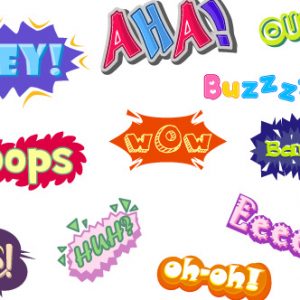
What is an Onomatopoeia?
Onomatopoeia is a word that sounds similar to the noise or sound it makes. For example, Mao for cat or boom for a loud boom. A good example of a child’s song that uses Onomatopoeia is, “The wheels on the bus”. I still remember singing this song with group of parents and children as we traveled to a field trip on a bus. The parts of the song that are an example of onomatopoeia are “the wipers on the bus go swish, swish”, “the horn on the bus goes beep, beep, beep. Accompanying with the lyrics of this song are hand movements imitating the action words.
“The wheels on the bus”
“The wheels on the bus” has a very interesting history. It appeared on the scene around the year 1939. It was so popular that it spread to United Kingdom, Unites States, Canada, and Australia. Yes, children all over the Western world amused themselves by singing this song in groups on bus trips.
What Could My Baby Learn from this Song?
“The wheels on the bus” song uses Onomatopoeia, which are basically fun words. Your infant can develop gross motor skills by preforming the actions of the words. For example, as you sing “the wipers on the bus go swish, swish, swish” imitating the wipers going back and forth teaches your child what wipers do and help him to learn gross motor skills by imitating the action words. Also, Because the song is sung with repetition and playfulness, your child can memory skills.
Know any Tongue Twisters?
I strongly believe that every person in the Western world knows the “Peter Piper” tongue twister. This tongue twister has its earliest mention back in 1813 originating in London. Some writers use the name Pierre Poivre, in the rhyme instead of Peter Piper
What can Baby Learn from Tongue Twisters?
As baby watches a tongues twister being recited, he can learn how to recognize difficult words. This challenges the brain in different ways than normal speak. As your infant’s brain is growing and developing each day, using a wide range of tongue twisters is an excellent manner that conscientious parents will use to help train and teach their baby.
Teaching Your Baby through songs and Rhymes
Educators know that teaching children through songs and games, is an extremely effective method of teaching. Tongue twisters are fun so laughing at yourself when you get it wrong, teaches your child to laugh at his silly mistakes. Onomatopoeia are an opportunity to promote learning of motors skills, sounds and repetitive words through active games. Your baby will benefit from the loving attention he receives, as you spend time teaching him ancient songs passed down from previous generations. Once you make learning exciting for children, they will be eager to learn and soak up lessons and new skills like a sponge.